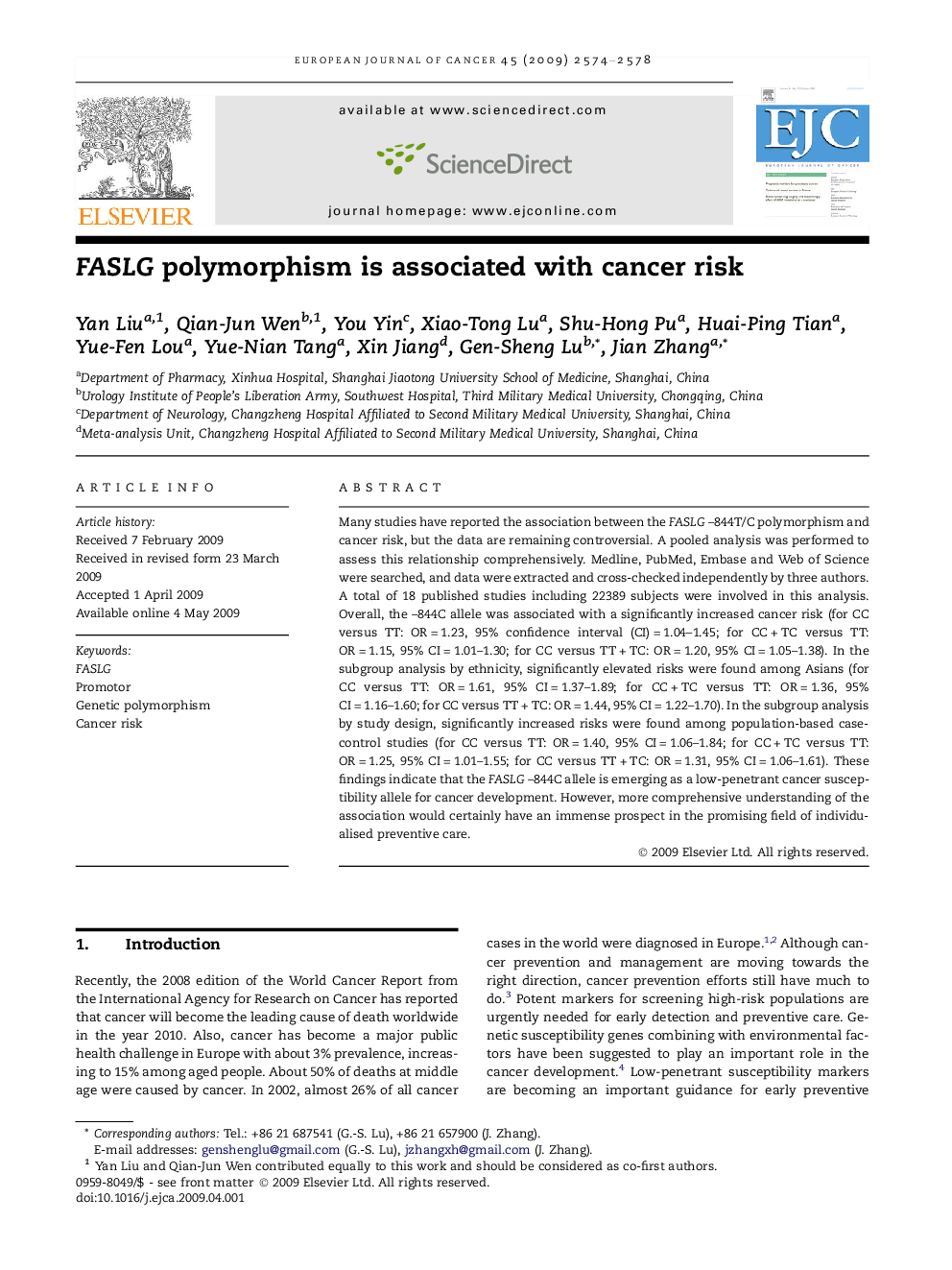| Article ID | Journal | Published Year | Pages | File Type |
|---|---|---|---|---|
| 2124405 | European Journal of Cancer | 2009 | 5 Pages |
Abstract
Many studies have reported the association between the FASLG -844T/C polymorphism and cancer risk, but the data are remaining controversial. A pooled analysis was performed to assess this relationship comprehensively. Medline, PubMed, Embase and Web of Science were searched, and data were extracted and cross-checked independently by three authors. A total of 18 published studies including 22389 subjects were involved in this analysis. Overall, the -844C allele was associated with a significantly increased cancer risk (for CC versus TT: ORÂ =Â 1.23, 95% confidence interval (CI)Â =Â 1.04-1.45; for CCÂ +Â TC versus TT: ORÂ =Â 1.15, 95% CIÂ =Â 1.01-1.30; for CC versus TTÂ +Â TC: ORÂ =Â 1.20, 95% CIÂ =Â 1.05-1.38). In the subgroup analysis by ethnicity, significantly elevated risks were found among Asians (for CC versus TT: ORÂ =Â 1.61, 95% CIÂ =Â 1.37-1.89; for CCÂ +Â TC versus TT: ORÂ =Â 1.36, 95% CIÂ =Â 1.16-1.60; for CC versus TTÂ +Â TC: ORÂ =Â 1.44, 95% CIÂ =Â 1.22-1.70). In the subgroup analysis by study design, significantly increased risks were found among population-based case-control studies (for CC versus TT: ORÂ =Â 1.40, 95% CIÂ =Â 1.06-1.84; for CCÂ +Â TC versus TT: ORÂ =Â 1.25, 95% CIÂ =Â 1.01-1.55; for CC versus TTÂ +Â TC: ORÂ =Â 1.31, 95% CIÂ =Â 1.06-1.61). These findings indicate that the FASLG -844C allele is emerging as a low-penetrant cancer susceptibility allele for cancer development. However, more comprehensive understanding of the association would certainly have an immense prospect in the promising field of individualised preventive care.
Related Topics
Life Sciences
Biochemistry, Genetics and Molecular Biology
Cancer Research
Authors
Yan Liu, Qian-Jun Wen, You Yin, Xiao-Tong Lu, Shu-Hong Pu, Huai-Ping Tian, Yue-Fen Lou, Yue-Nian Tang, Xin Jiang, Gen-Sheng Lu, Jian Zhang,
